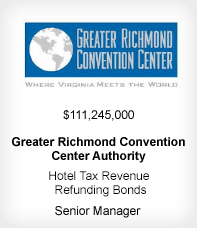Forward Delivery Bonds
The appeal of locking in future savings

In today’s environment of historically low interest rates, issuers are using forward delivery bonds to lock in savings. They are following the drumbeat of the pragmatic: A bird in the hand is worth two in the bush.
Forward delivery bonds are priced on a determined date but aren’t issued and settled until a date further in the future. Because the bonds are sold based on predetermined interest rates, the mechanism offers a hedge against interest rate and credit risk.
However, there is no such thing as a free lunch. Forward delivery bonds come with a premium, compensating investors for the fact that they can’t easily sell this type of investment during the forward period and will have committed funds to purchase the bonds at the future delivery. Issuers also must consider the risk of any contingencies in the purchase contract that would allow the underwriter to back out on the transaction, as well as the extra documentation and complexity that comes with the deal. For example, a purchase contract might allow investors an “out” if the issuer is not able to deliver a rating or there has been an elimination of tax-exemption upon closing.
“That’s why these bonds appeal to sophisticated issuers with a high credit rating and a good feel for what’s going on in the market,” said David Sutton, managing director with Raymond James Public Finance.
The Greater Richmond Convention Center Authority saved $13 million as a result of the forward transaction senior managed by Raymond James.
The typical forward bond issuer has at least a AA credit rating, and the typical forward bond investor tends to be a large institution – taking some of the risk out of the transaction.
A forward bond also attracts issuers who want to take advantage of the low interest rate environment to refinance a bond issue but are prohibited from an advance refunding by tax law. For them, a forward delivery bond might present an attractive alternative to waiting for a current refunding. This type of bond refunding is an important tool to help state and local governments manage debt, realize savings, or free up cash flow by restructuring payments.
This was the case for the Greater Richmond Convention Center Authority, which decided to pursue a tax-exempt refunding of its Series 2005 Bonds on a forward delivery basis. The authority relied on Raymond James as senior manager of the $111 million issuance of tax-exempt bonds, which was priced in October 2014 to lock in historically low interest rates but did not close until March 2015, to be in full compliance with IRS regulations. The authority saved $13 million as a result of the forward transaction – savings that will fund capital improvement projects without having to rely on debt financing from localities.
No matter the circumstance, it’s important for issuers to do a thorough cost-benefit analysis on any forward delivery bond issue to provide justification for the decision. When the savings add up, as they often do when interest rates are at such lows, we might see a tipping point for the issuance of forward delivery bonds.
Public Finance Market Watch
In-depth and timely commentary and analysis on the municipal market from industry experts.
